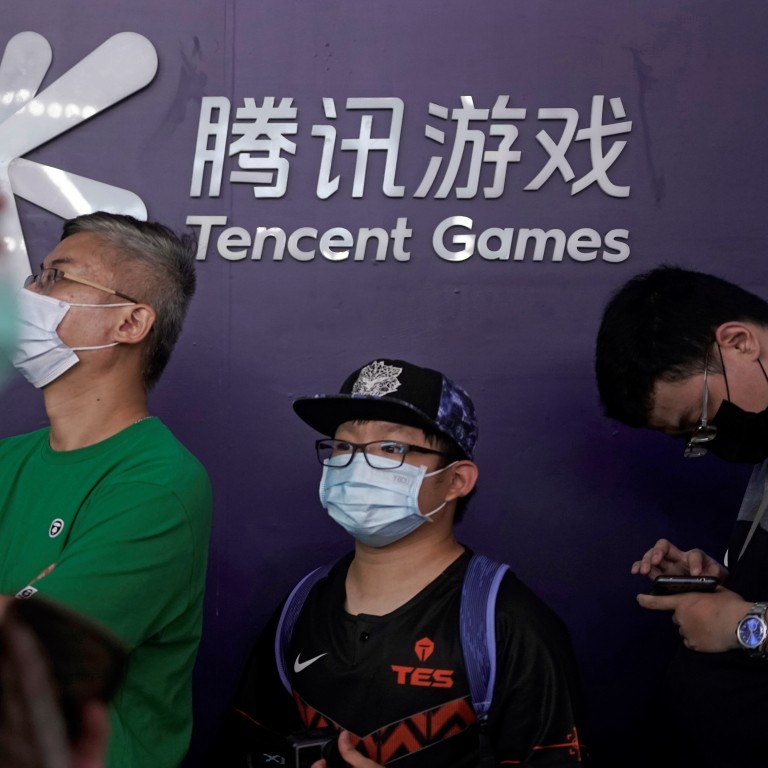
Tencent vs Huawei: China’s gaming giants have the upper hand in fight over revenue sharing on app stores
- Huawei accounts for 43 per cent of the domestic smartphone market and many of its users are also fans of Tencent games such as Honour of Kings
- Handset makers can take a bigger share of game revenues because Chinese game developers often rely on pre-installed apps to reach players
The recent public spat between Chinese internet giant Tencent Holdings and telecommunications equipment maker Huawei Technologies Co has highlighted a shift in the balance of power between game developers and distribution channels, as players increasingly focus their interest on a small number of popular games.
The dispute spilled into public view on January 1 when Huawei announced it had removed Tencent’s mobile games from its app store, the Huawei AppGallery. The move shocked netizens as Huawei accounts for 43 per cent of the domestic smartphone market and many of its users are also fans of Tencent games such as Honour of Kings.
The saga took a dramatic turn a few hours later when Tencent titles reappeared on the Huawei AppGallery and both sides claimed the dispute had been solved “after friendly negotiations”. Huawei did not reveal the reason for its initial decision to remove the games and Tencent offered no explanation for the dispute.
According to sources familiar with the matter, the disagreement was over revenue sharing for Tencent games: Huawei wanted to retain a 50 per cent share of game revenues on its app store while Tencent argued for 30 per cent – in line with what Google Play and Apple’s App Store charge game developers.
Most Chinese Android app stores, which are preloaded on handsets from companies such as Huawei and Xiaomi, take a 50 per cent cut of the revenue generated by the mobile apps. The handset makers are able to take a bigger share of game revenues because Chinese developers often rely on pre-installed apps to reach players. As Google Play is blocked in China, home-grown app stores run by smartphone makers dominate the Android-based market.
Now Chinese game developers are trying to zap platform tax
But as players are relying less on pre-installed app stores to access their favourite titles, game content providers like Tencent have pushed for a bigger share of game revenues from the handset makers, analysts say.
In another case, Chinese mobile game Genshin Impact was pulled from the Huawei AppGallery days before its launch in an apparent dispute over the revenue split. The game went on to become one of the most popular in 2020 even though it was not available from Huawei.
Liao Xuhua, an analyst for Beijing-based consultancy Analysys, said the days when Chinese Android platforms could take a 50 per cent cut of game revenues are numbered. “It will definitely change in future,” he said.
This is not the first time Tencent has pressured app stores in China to lower commission rates. Last July, the company was privately lobbying Chinese smartphone vendors and app stores to cut their fees to 30 per cent, according to a Bloomberg report.
Global lockdowns to combat Covid-19 helped fuel a boom in video gaming. The global gaming market will grow 19.6 per cent to US$174.9 billion this year, according to research firm Newzoo. China is the world’s biggest gaming market with estimated annual revenues of US$44 billion.
The Mobile Hardcore Alliance, a coalition of Android app stores run by eight smartphone makers including Huawei, Vivo and Oppo, said in a report that its app stores reached 65.7 per cent of users, or nearly 700 million people, in the first nine months of last year.
Nonetheless, smartphone makers and app stores are losing their bargaining power.
“Tencent’s games constitute a large portion of the gaming market and that will affect Huawei’s phone brand if its users can’t download the top games conveniently,” said Owen Soh, founder of gaming consultancy Eastlab Consulting, adding that the loss of Huawei’s distribution would not hurt Tencent that much, especially if users can download games from other sources.
Chundi Zhang, a video games analyst at Ampere Analysis, said the shift in power to gaming content providers would be more pronounced in China because authorities severely restrict the number of mobile games via a strict licensing system.
“High-quality content in the market is becoming more and more rare, giving content providers a greater say,” he said.

